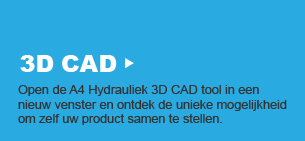In my last hydraulics message, I talked about 80/20 thinking and gave an example of how it can be used to identify big savings on your equipment operating costs.
Today a valuable lesson and reminder of the hefty cost of incorrectly diagnosing hydraulic problems:
"We have some problems with a Denison transmission pump P24S 2R1C 9A2. Oil temperature rises from 20 to 50 Celsius within 15-20 minutes of only light operation (65 bar).
The pump was sent to a local workshop for repair and cost us 10,000 dollars yet the problem remains?"
Is there really a problem here at all?
Oil temperature is rising to 50 Celsius within 20 minutes.
No big deal. Since this client is from Singapore, I would expect him to be using a VG68 hydraulic oil.
Depending on the viscosity index of the particular oil he's using, optimum operating viscosity is achieved between 55 and 78 Celsius.
So after 20 minutes, the system isn't even at operating temperature. Of itself, no cause for alarm.
But why does this system heat up so fast?
Well this is a big transmission pump - 24 cubic inches or 400 cubic centimeters per rev. So it will have a big charge pump. As big as 4.8 cubic inches or 80 cubic centimeters per rev.
If these pumps are turning at 1500 rpm and charge pressure is set at 23 bar, the charge pump is generating 4600 watts of pure heat load.
That's equivalent to the power of two electric kettles.
And being a hydrostatic transmission, it won't have a large reservoir - perhaps as small as half charge pump flow per minute. Which in this case, could be as little as 16 gallons or 60 liters.
So the transmission's inbuilt heating element, (charge pump) will soon warm up this volume of oil - even with the transmission in neutral.
Based on my long experience in the hydraulics biz, the whole issue of efficiency, heat-load and cooling - and its inter-relationship with viscosity and lubrication, is widely misunderstood by hydraulic equipment users.
And as the above example illustrates, it can get them into a heap of trouble.
By Brendan Casey











